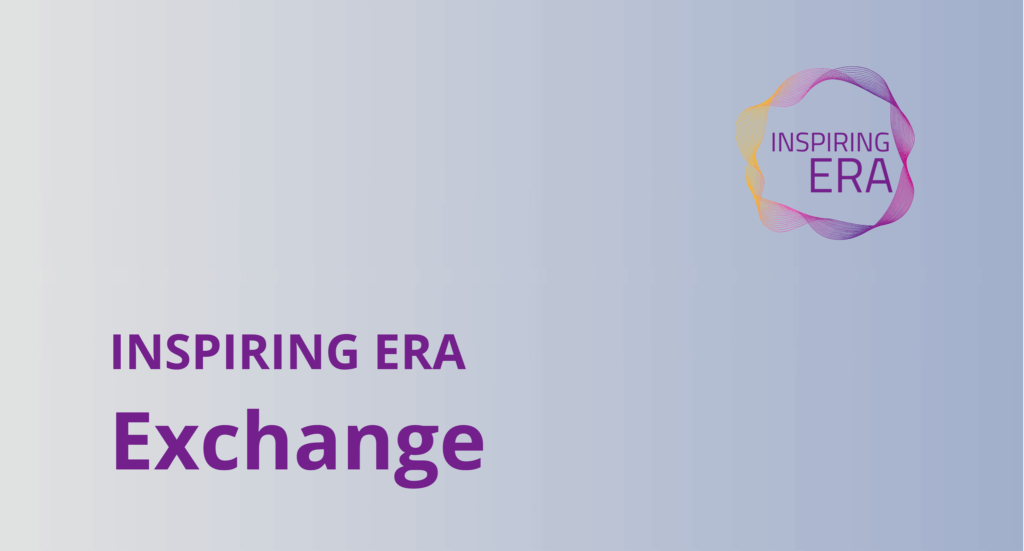The latest INSPIRING ERA Exchange brought together around 40 experts—including policymakers, research funders, national ministries, publishers, librarians, and researchers from across Europe—who worked collaboratively to address major challenges in achieving equitable, sustainable Open Access publishing in the European Research Area.
Keynote speakers and their commitment
The event opened with a welcome from representatives of the Polish Ministry of Science and Higher Education: Michał Goszczyński – Deputy Director, Department of Innovation and Development, and Polish Science Contact Agency: Tomasz Poprawka – Director at the PolSCA in Brussels, who emphasized the government’s ongoing work to strengthen national open access policies and announced new strategic initiatives to align Polish policy with the evolving ERA agenda. Maciej Zdanowicz – EU Policy Advisor at NCBR Office in Brussels set the tone for the day by presenting the objectives of INSPIRING ERA, facilitating the debate, and introducing the breakout groups .
The event featured presentations from leading actors:
- Maciej Maryl, director of the Digital Humanities Centre at IBL PAN, who showcased how collaboration between national projects, infrastructure providers, and European networks is critical for making Open Access effective, multilingual, and attuned to real community needs.
- Panagiota Kondyli (European Commission, DG RTD) connected online to present the latest policy developments at EU level, including the upcoming ERA Policy Agenda 2025–2027 and new legislative directions such as the future ERA Act, reinforcing the Commission’s active support for removing legal and practical hurdles in open science.
- Niels Stern (OAPEN/DOAB), highlighted the ambitions and challenges of Diamond Open Access, especially for scholarly books, stressing the need for multilingualism, shared infrastructure, and robust, community-led funding frameworks.
- Gerinta Raguckaite (Research Council of Lithuania) shared Lithuania’s experience with building an Open Science Ambassador Network, illustrating the impact of empowering research managers and practitioners as agents of change.
- Contributions from OpenAIRE shared by Agnieszka CYBULSKA-PHELAN (Interdisciplinary Centre for Mathematical and Computational Modelling, University of Warsaw), national libraries, research managers, and Polish academic institutions addressed policy alignment, the role of repositories, training gaps, and researcher engagement.
Speakers’ active participation and openness fueled insightful debate, knowledge exchange, and practical solution-building, showing real dedication to collective progress in Open Access and ERA reforms.
Main Topics and Outcomes
- Funding and Equity: Fragmented OA funding was widely discussed, with broad support for sustainable, coordinated investment in Diamond OA and community infrastructure.
- Policy Alignment: Both national and EU experts stressed the urgency of harmonising Open Science and research assessment policies across ministries, funders, and institutions.
- Infrastructure: There was strong consensus on prioritizing repository interoperability, metadata standards, and inclusion of smaller languages to ensure discoverability for all European research.
- Researcher Engagement: Several interventions underscored the need for pragmatic training, incentives, and support—especially in widening countries—to empower more researchers in adopting open practices.
- Legal Barriers: Discussions tackled complex copyright issues and practical obstacles, with the European Commission presenting insights from new studies and consultations.
Next Steps
Participants jointly formulated actionable recommendations for national and EU-level stakeholders, including:
- Coordinate national and European repositories for long-term accessibility.
- Enhance capacity-building for researchers and managers, especially in Widening countries.
- Promote shared standards and policy alignment across the ERA.
- Advocate for robust, sustainable Diamond OA initiatives.
All presentations and resources from the event are available for download on our website. The insights and recommendations from this Exchange will be published in the upcoming report.
The INSPIRING ERA team warmly thanks all speakers and participants for their strong engagement, expertise, and shared commitment.


